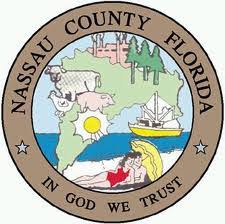 By Cindy Jackson
By Cindy Jackson
Reporter
August 27, 2021
Who is Bert Harris and what is the Bert J. Harris, Jr. Private Property Rights Protection Act?
Bert Jerome Harris Jr. was a politician and farmer in the State of Florida.
Born in Georgia, Harris moved to the Sunshine State in 1926 and graduated from the University of Florida with a degree in Agriculture. Harris served in the Florida House of Representatives from 1982 to 1992 and worked to preserve the rights of property owners.
Here in Nassau County and most apropos of late, is a discussion of the Bert J. Harris, Jr. Private Property Rights Protection Act –originally enacted in 1995 and one which has been amended a time or two –most recently during the 2020-2021 legislative session in Tallahassee. The latest changes will take effect October 1, 2021.
The new changes, which many claim, tip the scales in favor of private property owners.
And, these latest changes were introduced in the State House by two representatives that are practicing real estate and land use attorneys – one from Sebring, Florida and the other from Fort Myers.
At the workshop held on (8/23/21) County Attorney Michael Mullin led the discussion.
Recent changes (to take effect on October 1, 2021) could greatly impact a recently passed ordinance that puts a height restriction on new construction. That ordinance, passed earlier this year limits the height of new construction to just 35 feet – or about three stories.
As passed, that County ordinance conforms with Fernandina Beach (City) regs.
Here is what the Florida Bar had to say:
Florida is a state that provides relief to private landowners when a law, regulation, or ordinance inordinately burdens, restricts, or limits private property without amounting to a taking under the U.S Constitution. The State of Florida enacted the Bert J. Harris, Jr., Private Property Rights Protection Act in 1995, which provides a specific process for landowners to seek relief when their property is unfairly affected by government action. Under the act, a claim exists if a governmental entity inordinately burdens an existing use of real property or a vested right to a specific use of real property.
Here is a brief summary:
- under the “old” law, property owners had to provide a “bona fide, valid appraisal;” under the new law, property owners just need to provide an “appraisal report,” which translates into someone saying “this property is worth $5 million.”
- under the old law: A prevailing property owner may recover attorneys’ fees and costs beginning on the date the property owner gives notice to the government; under the old law, 150 days was required. Now it’s just 90 days.
Said one news article, “This will increase pressure on governments to resolve colorable claims prior to litigation.”
And, said Mullin, during his presentation, “There is ‘nothing to lose’ if I [referring to a property owner] start the process.”
When Mullin was asked (after the workshop), if the County had put this bill on the lobbyist “watch list,” Mullin said “No.” The National League of Cities had opposed the bill from the “get go” and Mullin indicated the Florida Association of Counties had done so as well.
So, those organizations were doing the heavy lifting.
Newly hired Assistant County Attorney, Ms. Denise May has been intimately involved with cases relating to the Bert J. Harris, Jr. Private Property Rights Protection Act – in St. Augustine and in Jacksonville Beach. When asked about the impact of the legislation slated to go into effect on October 1, 2021, Ms. Day said: “They are tipping the scale . . . from one side to the other.”
Asked Commissioner John Martin “does this tip the scale more in favor of the property owner?” to which Day said “Yes.”
It ultimately took Jacksonville Beach 10-11 years to resolve a dispute relating to height restrictions — despite that “ordinance” being a result of a public referendum.
As to St. Augustine, that case related to a demolition project which took almost ten years to resolve. St. Augustine “won” having spent over $500,000 of which just $60,000 was recouped.

A speculator’s dream world. Sad, destabilizing for any community, and a recipe for corruption.
A community has rights, too. It seems a building height restriction cannot be considered an undue burden or violating a vested right of a developer. We need elected officials who have some backbone and willing to fight for all of us.
Mark – This change in “the rules” makes it very hard to deal with an “inflated” valuation. I hope our Reps, Arron Bean and Cord Byrd understand the ramifications and change the language back to “bona fide, valid” appraisal. And deals with the Attorney’s fees issues. Otherwise, it’s exploitation and speculation, here and now.
Money and Politics, we must stop this influence over the general public’s rights.
I thought as residents of Fernandina Beach and Nassau County we voted and made our opinions known to our governance our opinion on limited height limits. This Bert Harris rule infringes on our right as a resident of Fernandina Beach and Nassau County to determine how we want the development to proceed.
The Highest Level Property Appraiser Official, admitted data entry error occurred, leaving a terminally ill man’s Homestead exposed like fish in a barrel, however, when discovered, Wells Fargo had literally twice sold my home, and further, employed 9 Tampa Police to enter my home, demand that I leave immediately or go to jail for Trespassing. Needless to say, I’m very ill and I can not be incarcerated. I would like to think that I am able to file a claim, at least on the contents, of which, exceed $1.25mmln